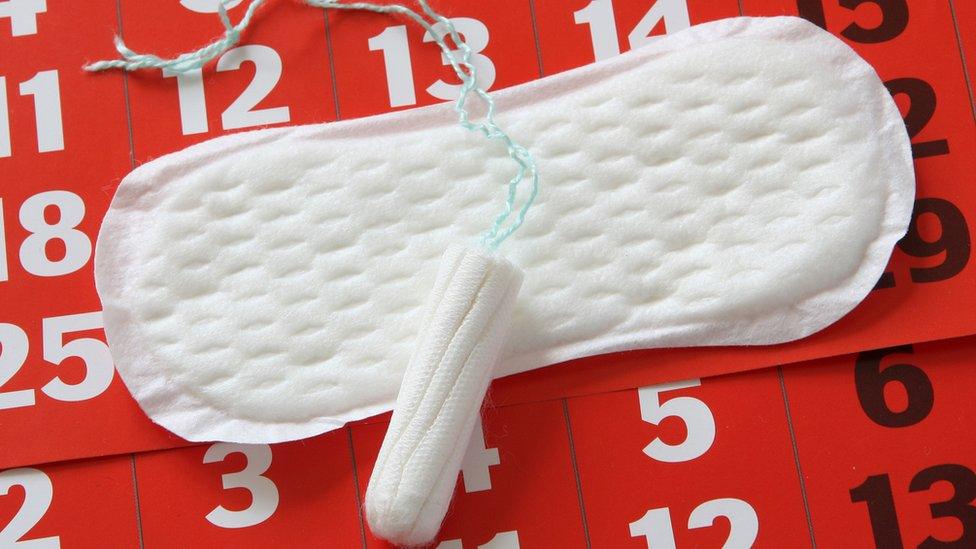Period poverty: Covid pandemic makes tampons a luxury
- Published
Sarah Henton and her daughter have joined the scheme offering free hygiene products
A school which donates free tampons and towels to girls who can't afford them said the pandemic is making everyday essentials a luxury.
Milford Haven School in Pembrokeshire has said there's also been increases in free school meal claims and food bank referrals.
The project also says there is a further need for basic toiletries.
The Welsh government says since 2018 it has invested £9m to help give free period products to those in need.
'More dignity'
One of those benefitting from the period poverty scheme at the school is mum Sarah Henton. She first received a bag of sanitary towels and tampons when coronavirus hit.
Ms Henton said as a parent managing a budget for two young boys and a daughter on a low income during a pandemic is difficult.
Rising bills and inflation also added to the financial pressure.
"With the cost of everything rising, it is nice to know that is one less thing that we have to worry about.
"Making sure that we've got enough food, heating, electricity," she added.
"And then hygiene products, especially for women is something that we do have to think about."
She and her daughter, Elaina, 12, joined the scheme through Milford Community Action, set up by Milford Haven School and youth project Milford Youth Matters.
Although Elaina is not a pupil at Milford Haven School she could still benefit.
The monthly bags contain reusable and sustainable period products and toiletries. They also include treats such as chocolates, face masks and hand sanitisers.
Sarah said the parcels gave her "a bit more dignity" and "made you feel that more human, like somebody cared about you".
"There is a stigma behind asking for things like that."
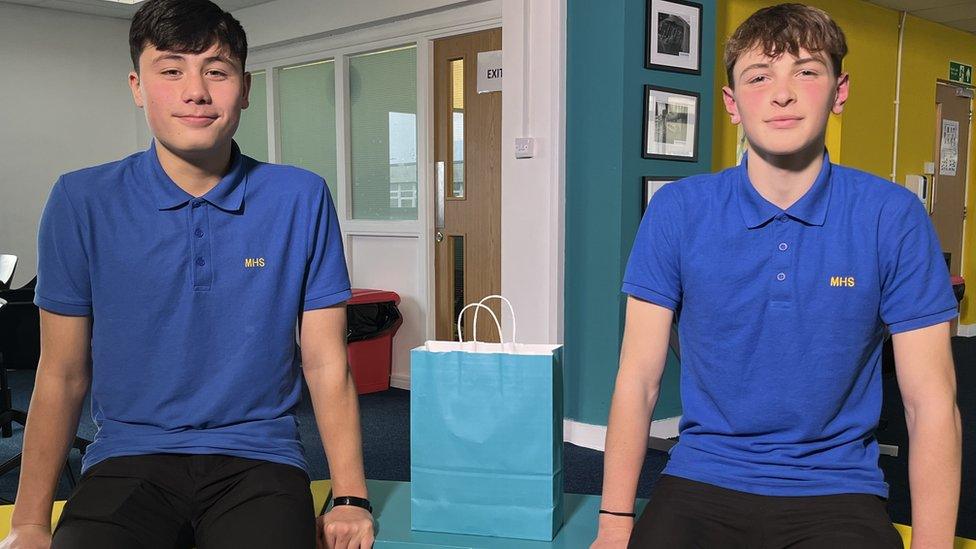
Owen (l) and Harry say hygiene parcels could break down the stigma for boys needing help
Elaina added that it also took away her peers' sense of awkwardness and shame about periods.
"It's nice to have sweet things and an easy way to get the products," she added.
"If you can get them whenever you want you don't really have to ask and then you don't have to feel embarrassed."
Research by Loughborough University for the UK End Child Poverty Coalition of charities has suggested at least one in five children in Wales was living below the poverty line before the pandemic - the worst of the UK nations.
One of the areas where the rate of child poverty is increasing the fastest is Pembrokeshire.
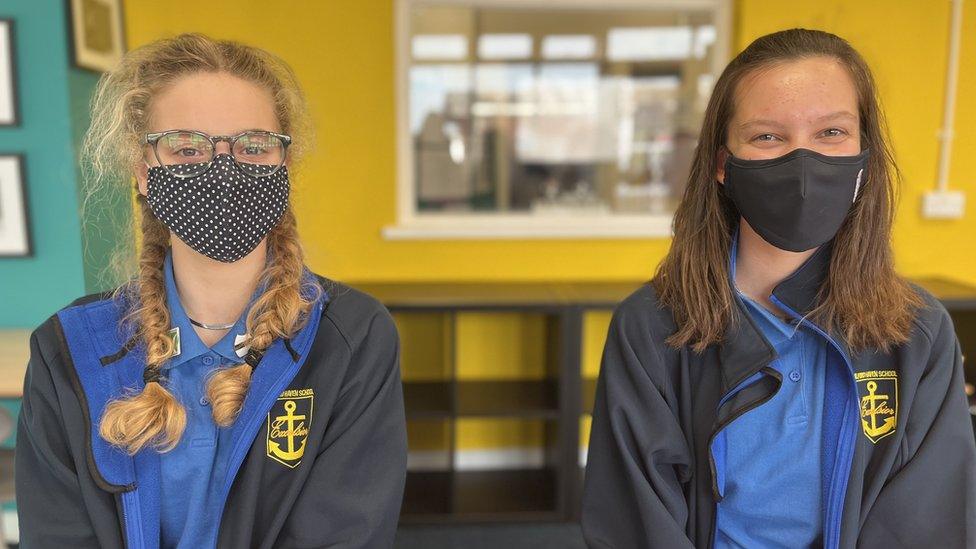
Mari (l) and Grace have been helping to put the period parcels together
At Milford Haven School 28% of pupils receive free school meals.
Gemma Baker is period poverty project lead at the school.
She wants to create "period dignity" by giving young women a choice of menstrual products. This includes free eco-friendly products like period pants and reusable pads for all pupils, regardless of financial status, thereby removing any stigma.
Mari and Grace, both 15, helped to create the packs.
"As time has gone on we've made it better and added other things," Grace said.
"It's stuff that's going to last you a lot longer," Mari added.
Teacher Rachel Mansell said by offering free towels and tampons, girls had "made huge leaps and bounds" with their academic outcomes.
She said it "eradicated" obstacles "that could potentially stop them coming to school, could cause that embarrassment, could cause that sense of I don't quite fit in".
Ms Baker added that since the pandemic more families are in need - not just for period products but for basic toiletries.
"There wasn't always money left for actually what we would classify as essential items, but became luxuries."
As Welsh government only funds period products the school has been exploring other ways to raise money and serve this need.
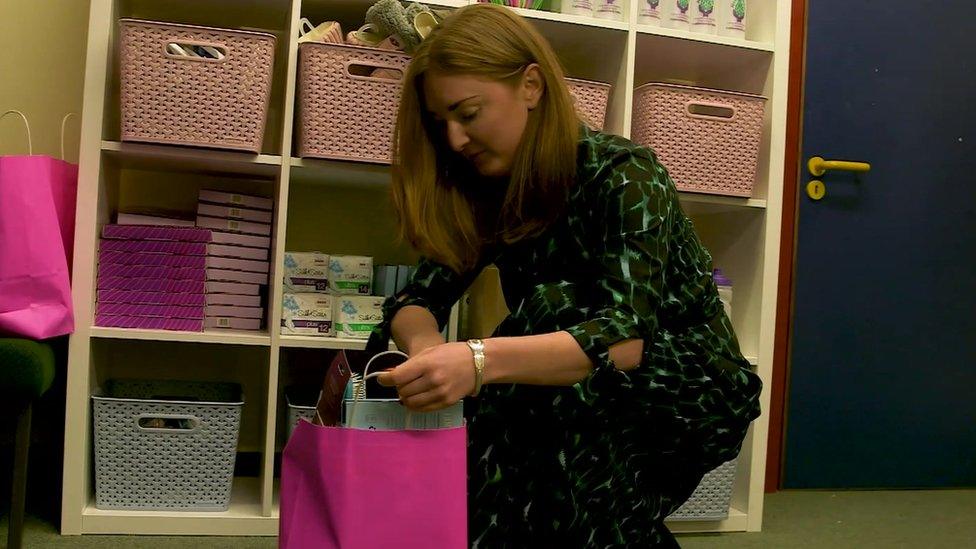
Gemma Baker says a trial showed there a wider need for hygiene products which the pandemic has shone a light on
Donations from the town's Tesco and the Women's Institute (WI) meant they could run a trial offering 30 toiletry packs for men.
When the parcels containing shower gel, deodorant and toothbrushes were rolled out they were gone within a day.
Pupils Owen and Harry said these parcels helped break down the stigma for boys needing help.
"Males don't tend to speak up about it as much as females do," Charlie said.
Owen added: "If people talked about it more the issue could be made more aware of."
Ms Henton said the Welsh government should extend funding to cover toiletries for anyone in need.
"Personal hygiene is something everybody has a right to, whether they have money or not," Ms Henton added.
The Welsh government said: "We have allocated an additional £500,000 as part of the £51m Household Support Fund to help meet increased demand over the winter period.
"Since 2018, we have invested almost £9m to ensure children and young people and women on low incomes have access to free period products."
Related topics
- Published25 September 2019
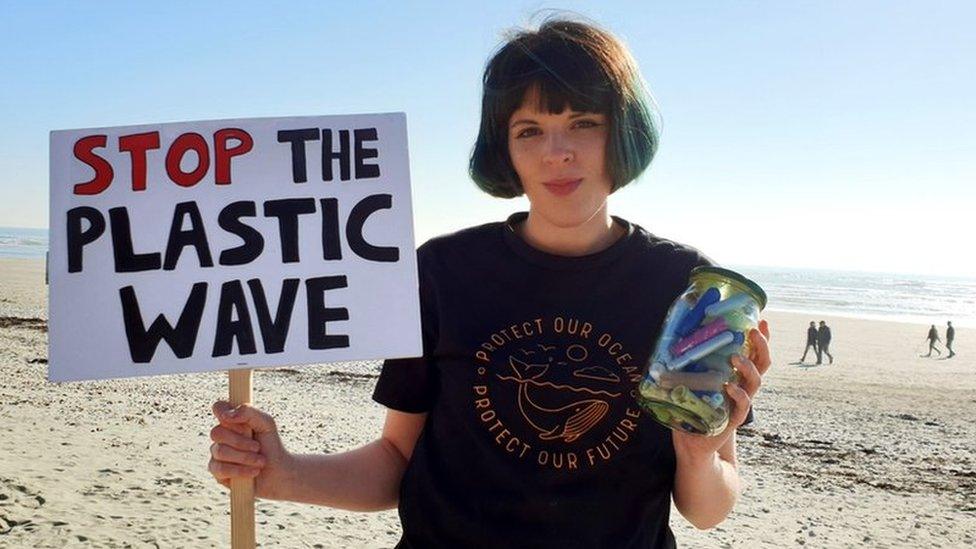
- Published3 January 2020
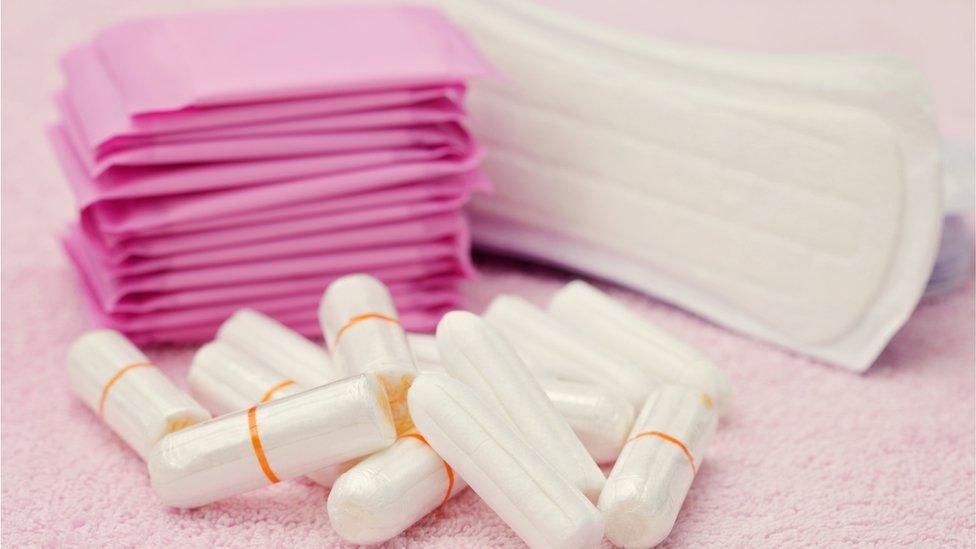
- Published2 May 2018
